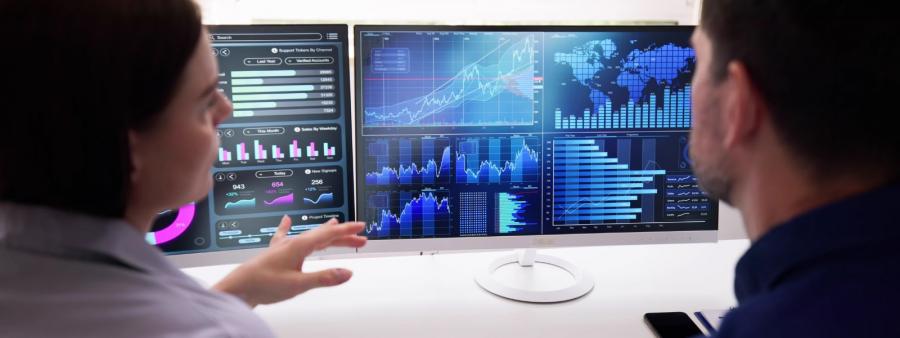The 5 phases of project management according to PMI

If you can understand the project management life cycle, you will be able to implement better processes. But why are these five phases so important?
The Project Management Institute (PMI) defines this model in its PMBOK Guide, the benchmark for professionals seeking to increase their knowledge and skills in the area of project management.
Want to know how to successfully implement the 5 phases of a project? Read on!
PMBOK | The definitive guide to project management
Project management is facing a dynamic landscape marked by the increasing complexity of projects, the accelerating pace of change and the need for greater agility and adaptation.
In this context, PMI plays a key role as a global leader in its professionalization. The organization recognizes the need for constant updating to reflect changes in the business environment. In this regard, PMI is constantly updating the PMBOK Guide, incorporating new trends and practices relevant to project management in the 21st century.
PMI also offers a wide range of resources and tools to help project management professionals stay current and develop their skills.
1. Project initiation phase
The initiation phase is the starting point of a project, where the objective is defined, the client's needs are identified and a preliminary plan is established. Stakeholders are also identified and the scope of the project is defined. This is the time to define the overall vision of the project and how it aligns with the organization's strategic goals.
During this phase, it is crucial to establish a clear vision for the project and ensure that all stakeholders are aligned in terms of their objectives and expectations. It is also important to establish a working team and assign roles and responsibilities.
The outcome of this phase is the approval of the project by the stakeholders and the creation of a project initiation document (Project Charter) containing the project objectives, scope, deliverables and preliminary budget.
Key deliverables:
-
Project initiation document
-
Feasibility study
-
Stakeholder registration
2. Planning Phase
Once the project has been approved and a solid foundation has been established in the initiation phase, it is time to plan the details of the project. During this phase, a detailed plan is developed to guide the execution of the project. This plan becomes a roadmap detailing each step necessary to achieve the project objectives.
The project plan should include a schedule, a detailed budget, a risk management plan and a communication plan. Required resources should also be identified and assigned to specific tasks. Defining milestones and assigning realistic and achievable deadlines are essential to keep the project on track.
The planning phase also involves all stakeholders and focuses on obtaining approval of the plan before moving on to the next phase.
Key deliverables:
-
Project management plan
-
Timeline
-
Budget
-
Communication plan
-
Risk management plan
3. Execution Phase
In the execution phase, the work planned in the previous phase is carried out. This is the stage where planning turns into action and results begin to take shape. During this phase, the project team works closely together to complete the tasks and deliver the project deliverables.
The project manager plays a key role in this phase, ensuring that the team is on track and resolving any issues that arise. It is also important to maintain clear and constant communication with all stakeholders to ensure that the project is progressing as planned. Effective execution requires flexible and adaptive management to meet challenges as they arise.
Key deliverables:
-
Project deliverables or services.
-
Status reports
-
Plan updates
4. Monitoring and Control Phase
During the monitoring and control phase, the project manager monitors and controls the progress of the project to ensure that it is progressing as planned. This phase also involves identifying and resolving problems and risks in real time. It is a continuous stage that overlaps with execution and requires constant review of project metrics.
The project manager must compare actual progress with the project plan and make adjustments if necessary. Periodic reports should also be made to stakeholders to keep them informed of the project's progress. Transparency in monitoring and accountability are vital to maintain stakeholder confidence.
Key deliverables:
-
Performance reports
-
Variance analysis
-
Plan updates
5. Final phase of the cycle - Closure
The final phase of the project life cycle is closure. During this phase, the final product is delivered to the client and a review of the project is conducted to identify lessons learned and areas for improvement. This is the time to evaluate the results of the project compared to the initial objectives.
Key deliverables:
-
Final product or service
-
Lessons learned report
-
Project closure documentation
At La Salle Campus Barcelona we have pioneering programs in project management that will help you boost your professional future and train you to become a successful project manager. The Master's Degree in Project Management is one of the only programs awarded 5 stars in the renowned QS STARS International Program: the highest recognition in this system.
In addition, after graduation you will be able to access the international PMP (Project Management Professional) certification. La Salle-URL is the first and only university in Spain to be accredited by the PMI Global Accreditation Center.

MASTER IN PROJECT MANAGEMENT | LA SALLE-URL